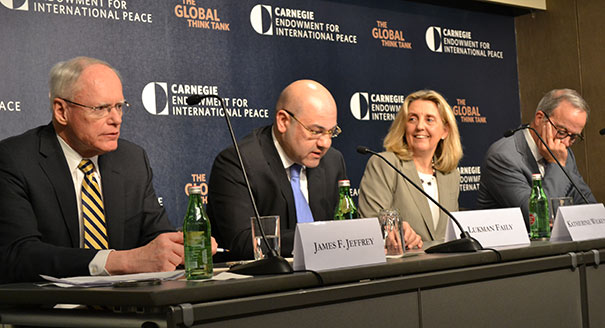Registration
You will receive an email confirming your registration.
Six months since the creation of the international coalition against the self-proclaimed Islamic State (IS), the military campaign is entering a new phase following the gruesome murder of a Jordanian pilot and the defeat of IS in Kobane last month. As the coalition prepares for a new ground campaign to retake major urban areas in Iraq, key questions loom about the role of U.S. troops, the progress of political change in Iraq, and the willingness and ability of coalition partners to address the underlying political and socioeconomic factors at the root of the Islamic State’s appeal.
This event considered the political, military, and regional aspects of the fight against the Islamic State, as well as the larger role IS plays within the ongoing struggle over ideas and values in the Arab world.
Marwan Muasher
Marwan Muasher is vice president for studies at the Carnegie Endowment for International Peace, where he oversees research in Washington and Beirut on the Middle East. Muasher served as foreign minister of Jordan from 2002 to 2004 and deputy prime minister from 2004 to 2005.
James F. Jeffrey
James F. Jeffrey is the Philip Solondz distinguished visiting fellow at The Washington Institute where he focuses on U.S. strategies to counter Iran’s efforts to expand its influence in the broader Middle East. Jeffrey previously served as the U.S. ambassador to Iraq from 2010 to 2012 and the U.S. ambassador to Turkey from 2008 to 2010.
Lukman Faily
Lukman Faily is the Iraqi ambassador to the United States. From 2010 to 2013 he served as Iraq’s ambassador to Japan. Prior to that, he was an ambassador at the Iraqi Ministry of Foreign Affairs. Faily lived in the United Kingdom for twenty years, working in the information technology sector for several transnational companies.
Katherine Wilkens
Katherine Wilkens is the deputy director of the Middle East Program at the Carnegie Endowment for International Peace.
